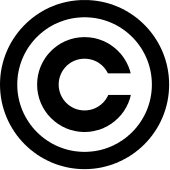Copyright gives people such as filmmakers, writers, musicians etc. the right to legally own their work and be paid for its use. The people have ownership of their products but their material is still available to the public, allowing them to sell and licence their own material and make a living. Copyright encourages individuality.
Creators of products like films, games, music, and books can gain inspiration from other products under copyright but must not display their ideas in the exact same way as these products. This is known as plagiarism. If you were to adapt and develop another person's work under copyright you would seek permission from the owner to do so. This would also allow the work you adapt to be protected by copyright. People may quote other people's work and/or use it for educational purposes, but these are the only exceptions. The use of archived work generally occurs when the creator of the product is not known or unreachable. After a creator's death, the work that they owned under copyright remains this was for 70 years, then it is open for public use.
This is the symbol used to label work under copyright;


No comments:
Post a Comment